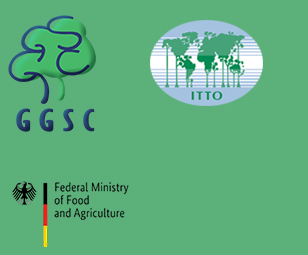
Ver3. Trade Statement 2022 by TAG (03 Nov 2022)
Chairman,
Ladies and Gentlemen.
The US dollar has appreciated 13% against the Euro and 6% since the start of this year. The Indian rupee has dropped nearly 10% this year against the dollar. The Vietnam dong has gone down 6% and Indonesian rupiah down 3%. South Korea won and Thailand baht are down more than 10%. China reminbi is trading near 14 year lows. The Malaysian ringgit is at its lowest in 24 years while the Japanese Yen is at is at its 32 years low.
The soaring dollar in 2022 is especially painful as it comes at a time of global inflationary pressures when prices were already soaring. Disruptions to energy and commodities caused by the Ukraine war made worse the COVID-19 recession and recovery. Inflation is at record highs in many countries.
It is against this dark backdrop that the tropical timber trade is bracing for what may lie ahead --- an economic recession.
(1) Europe
The tropical timber trade has every reason to support the objectives of the so-called EU Deforestation Law currently being considered by the European Council and Parliament. However, we are concerned that in the absence of any meaningful consultation with producer countries or trading partners, including those with which the EU has legally-binding partnership agreements, the law as currently drafted risks creating unnecessary technical barriers to trade, particularly for tropical countries. We note that even European forest and trade associations, have raised many questions on the how this law can be implemented in practice.
Our key concerns for the tropical timber trade and industry include the following:
1. Unlike the EUTR, the proposed deforestation law is not based on a legality standard that respects tropical countries laws, but prohibits products from legal as well as illegal deforestation. In other words, it is a unilateral approach rather than a cooperative one.
2. As such, it seems contrary to the principles of international law, as referenced in the ITTA, that States have "the sovereign right to exploit their own resources pursuant to their own environmental policies"
3. The new law would impose binding definitions of terms such as “deforestation” and "forest degradation". These terms are as yet not defined in an acceptable international arena. Depending on the definitions imposed by the EU, the new law could place significant constraints on tropical countries' ability to develop new forest plantations even on degraded forest lands.
4. The new law would impose an untested requirement for geolocation to be identified for all consignments of regulated products placed on the EU market, irrespective of the level of country risk, with significant potential to raise trade barriers, particularly for smallholders and composite products.
We believe the EU should avoid using these new regulations to curb free and fair trade, and improve on its communication with the stakeholders, including from outside of the EU, to assess the challenges faced by businesses towards compliance.
We urge Council to seek clarity. Is the EU walking away from its FLEGT by stealth? Producers have already invested heavily into FLEGT commitments and are shocked that EU is now shifting the goalposts.
(2) Plantations
Industrial tree plantations are needed to augment supply of raw material to the timber industry as well as planned climate change mitigation efforts by some countries.
It is believed that the rate of establishment in the tropics has been hampered by a lack of readily available and reliable information. And it seems in the lack of such information, investors turn to planting agriculture commodities instead of trees for a more assured financial return. Tree plantations need investment, training of personnel and establishment of nurseries.
ITTO can show leadership to champion tree plantations, by taking the following actions:
● Survey existing tree plantations in ITTO members of the three tropical regions, collecting real-time data on species, planting spacing, growth rates, soil specifics, production volumes, utilisation volumes, cost analysis, and so on.
● Using the data collected, design a database with appropriate menus for users to access data from actual plantations (good or bad) so as to make optimal commercial decisions in choice of species, sites, expected returns, planting plans, etc.
We urge ITTO to publish a Plantation Handbook containing all relevant technical and financial information specifically aimed at those investors who are going to plant trees,
(3) Carbon trade.
There are various estimates of the global Voluntary Carbon Offsets market, ranging from one to two billion US dollars a year. Reportedly, nearly 500 million credits, or tons of carbon, were traded in 2021 at an average price of US$ 4 per ton. Whatever the actual figures are, these are indeed huge numbers! The question is, how much of the offsets money are going into our Members?
As we have just heard, from the experts in the Market Discussion, there are relatively very few carbon related projects in ITTO Producing Countries, in all the three global tropical regions.
The mechanisms in carbon markets are complex and not readily understood. Even the basics of Carbon Credits and Carbon Offsets are not understood by government officials who are not familiar with developments in the UNFCCC. Many, if not most officials, in Producing Members do not know how to set up such projects
There is a desperate need to disseminate information and guidance on the opportunities to Producing Members, and at the same time provide strategic advice and technical assistance. A specific challenge is to orient companies towards carbon projects without losing sight of SFM. National institutions need to be strengthened and different stakeholders engaged in the process.
We urge ITTO to organise a Technical Training Workshop to address the weakness and shortcomings of Members so that they can participate in Climate Change mitigation while adding to their national revenue.
As the likelihood of a global recession looms, there is a risk that financial support for development projects in member countries will be reduced. This would be unfortunate as it is in difficult times that emerging economies need extra help, not less. If a recession comes and is prolonged, resource rich countries will be tempted to liquidate more of their natural resources to raise money and this spells danger for tropical forests. Not only do we need to tighten our belts, we need to make sure we get the most out of whatever financial resources we have. And this means to invest in ITTO projects wisely for the good of all members.
TAG, as always, stands ready to work with Members and the Secretariat to formulate Concept Notes for our two suggested projects which will impact many Producer Members: a Plantation Handbook and a technical training workshop for Carbon Offsets.
Thank you.
Note: TAG can be contacted at ti@itto.int

| E-mail:ggsc@itto-ggsc.org | Tel:86-10-62888626 |


Sigh Up for Emails |
|